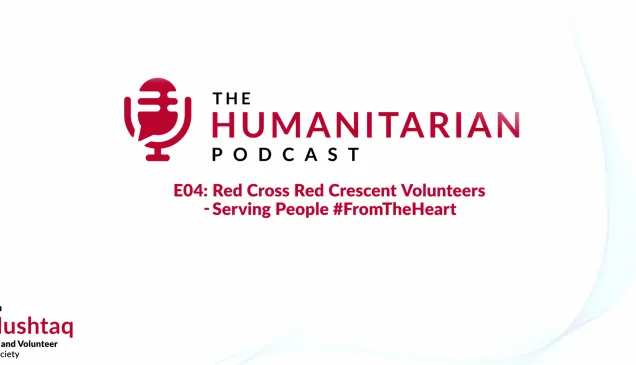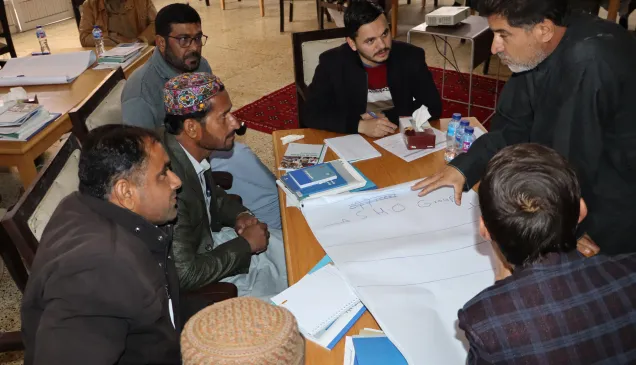Karachi (ICRC) – A public awareness campaign on respecting ambulances' right of way, entitled RastaDein, was launched in Karachi in 2016 as part of the Health Care in Danger project. A marked improvement has since been noted in motorists' behaviour.
The mid-term results of the project were presented at a ceremony co-hosted by the ICRC and the Sindh provincial authorities. Minister of Health Sikandar Ali Mandhro praised the efforts of the ICRC in highlighting the issue of violence against health-care workers and facilities. He said: "Let us work to create an environment where patients and care providers are respected, and to provide the best health-care facilities for our citizen". The Sindh Department of Health planned to implement further measures – including a working group with representatives of the medical community – to foster respect for medical standards and staff.
Mr Giovani Trambaiolo, Healthcare in Danger Project Advisor of the International Committee of the Red Cross (ICRC), praised the initiative: "What distinguishes the Karachi project is the home-grown nature of the solutions developed, based on credible research. These solutions are also inspiring initiatives in other countries." He stressed the ICRC's ongoing commitment to making Karachi safe for health-care staff and patients.
As part of the broader Health Care in Danger project, in 2015 the ICRC together with APPNA Institute of Public Health of Jinnah Sindh Medical University, Jinnah Postgraduate Medical Centre, Indus Hospital, Edhi Foundation and Aman Foundation carried out a study on patterns of violence against health-care staff and facilities in Karachi and analysed the legal framework safeguarding health care, with a view to developing a state-wide strategy. Manuals on de-escalating violence in health-care facilities and caring for victims were tested in training sessions attended by more than 450 health-care professionals in Karachi. Course materials were developed for medical students and a preparedness study to identify safety recommendations was conducted in five hospitals.
The ICRC and its partners will continue to work together to safeguard health care in Karachi.
For more information, please contact:
Najum Abbasi, ICRC Pakistan, 0300 8529108



